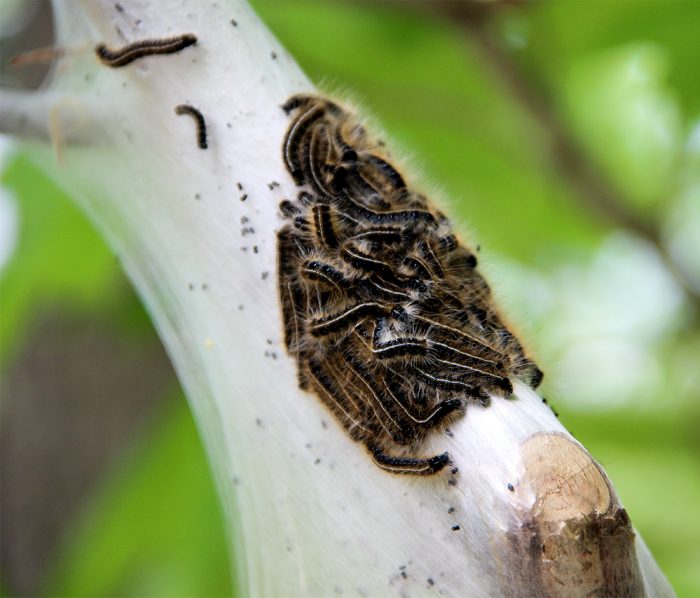
Eastern tent caterpillars Malacosoma americanum live communally in silken tents designed to keep them warm in cooler weather. The brood side of the tent faces the sun and the caterpillars will add silk as needed.
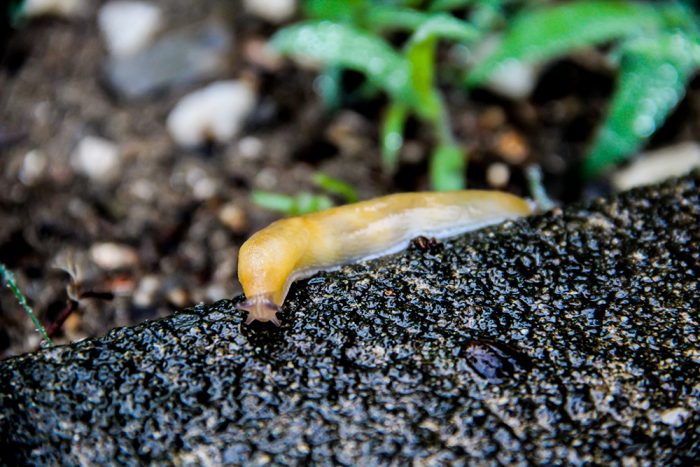
Slugs Gastropoda are very damaging pests in gardens and can be found in moist and humid climates, particularly during the rainy season. Slugs lay their eggs in moist soil and compost. These garden pests can digest most plants such as beans, lettuce, cabbage, and tomatoes. Slugs will especially thrive on young plants.
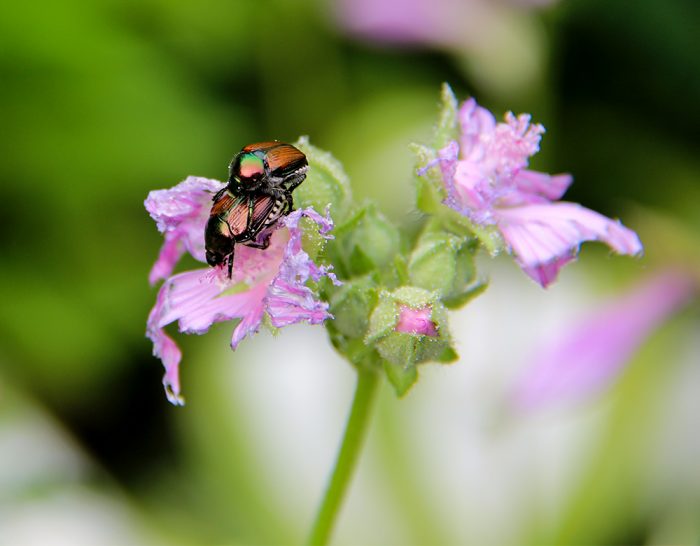
In North America, the Japanese beetle Popillia japonica is a pest that affects about 200 species of plants. These beetles damage plants by skeletonizing the foliage, which means they consume only the leaf material between the veins.
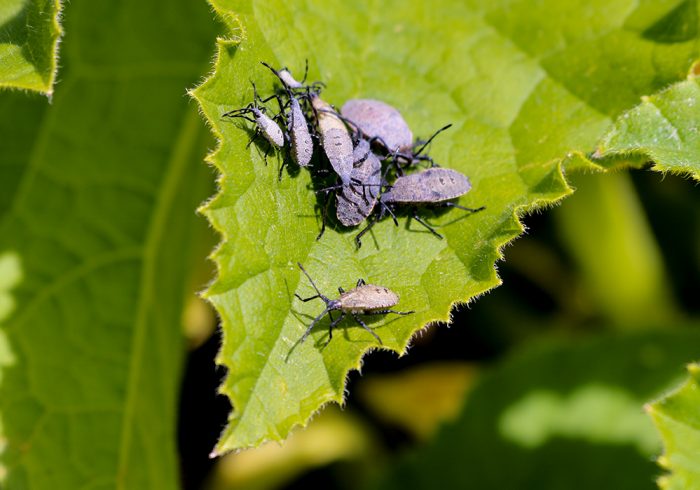
Squash Bugs Anasa tristis attack squash and pumpkins, but will also attack other cucurbits, such as cucumbers. Squash bugs have piercing and sucking mouthparts that they use to suck the sap from leaves. Their feeding causes yellow spots on leaves that will eventually turn brown.
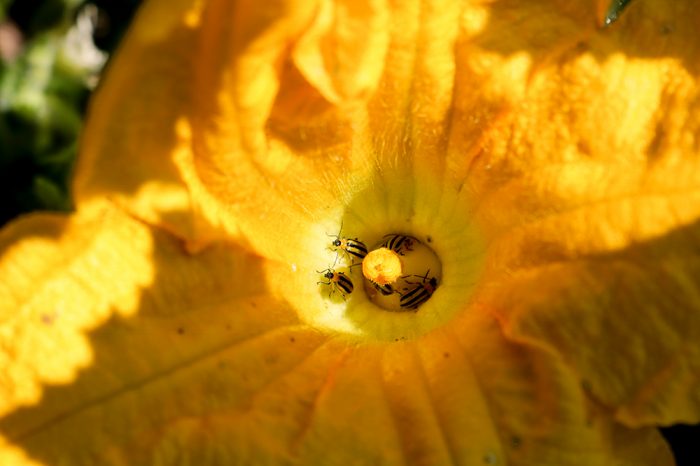
The striped cucumber beetle Acalymma vittatu is one of the most damaging garden pests to cucurbits, such as squash, cucumber, melon, and pumpkin. The beetle larvae can cause severe damage to roots. A single beetle can cause severe damage to a young plant by feeding on the lower surface of its leaves.
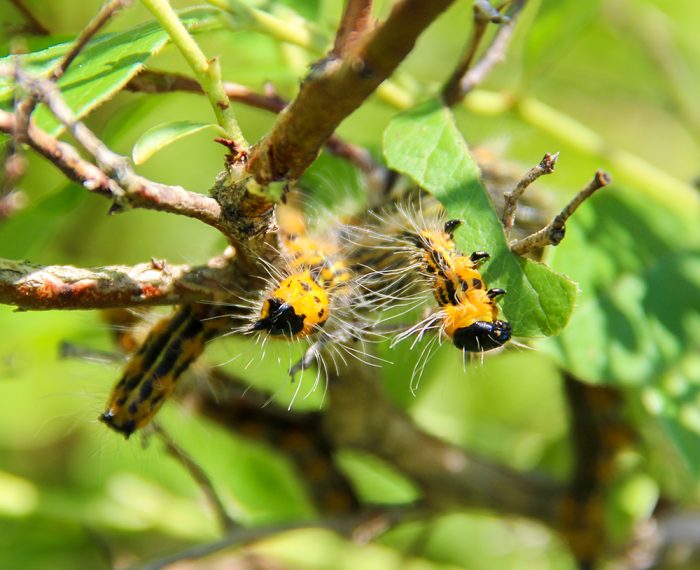
The eastern tent caterpillar defoliates ornamental trees, making their unsightly presence in yards a concern to homeowners. Typically, these damaged trees will recover and refoliate in several weeks.
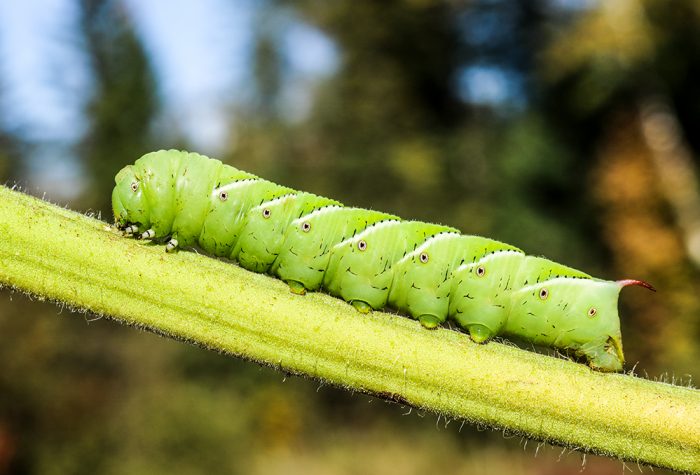
The tobacco hornworm Manduca sexta is a dreaded garden pest because it can cause extensive damage to your tomato plants and other members of the nightshade family Solanaceae, such as eggplants and peppers.
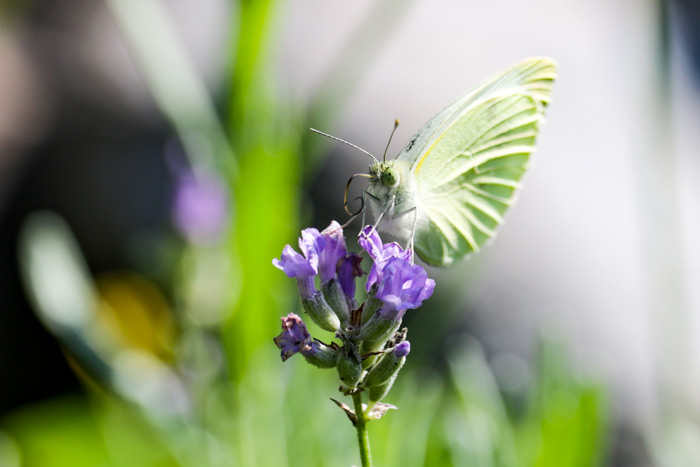
The white cabbage butterfly Pieris rapae is also known as the imported white cabbage moth. These imported moths are significant pests to plants in the Cruciferae family. They lay eggs that hatch into destructive foliage-feeding caterpillars. The plants that are affected include cabbage broccoli, kale, cauliflower, and cabbage. They will chew holes in leaves and skeletonize plants. Caterpillars may also bore into the heads of cabbage, destroying them as well.
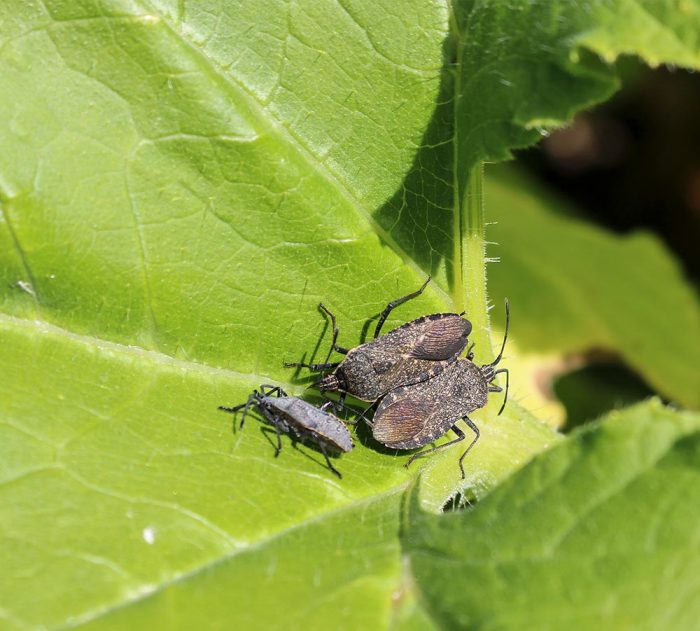
Squash bugs overwinter in sheltered places, such as under plant debris, around buildings, and under rocks. When adults emerge in the spring, they seek out growing cucurbit plants to feed on and breed.
Leave a Reply